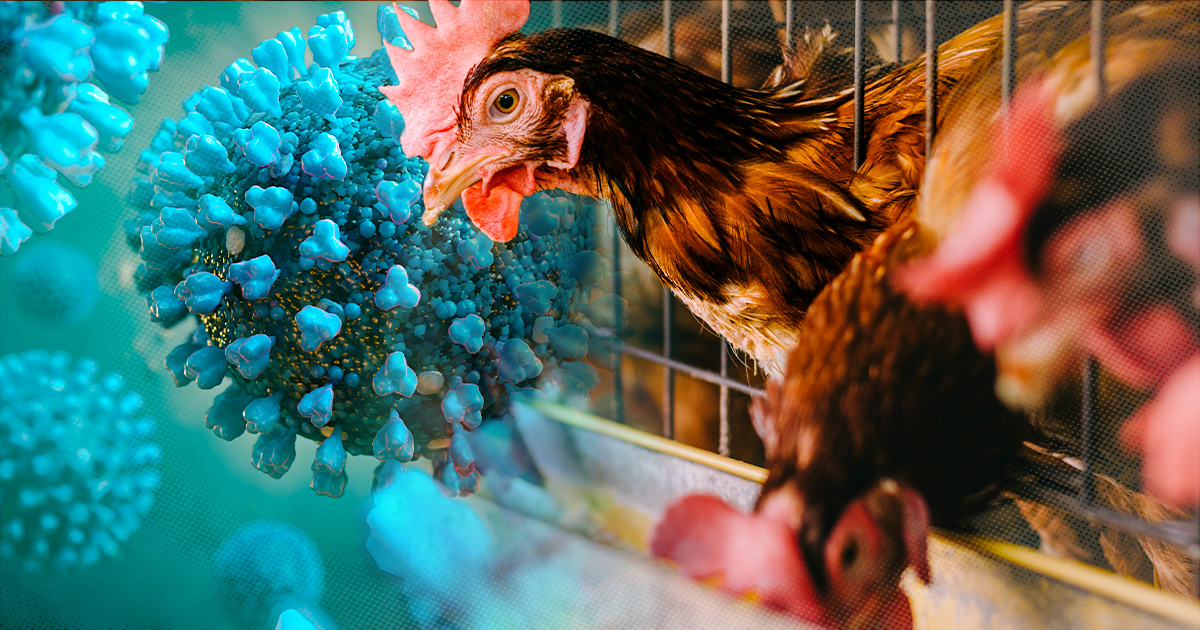Transmission and Prevention: Avian Influenza

Avian influenza, also known as bird flu, is a highly contagious viral infection that primarily affects birds. However, certain strains of the virus can also infect humans, causing a range of symptoms from mild respiratory illness to severe pneumonia.
The transmission of avian influenza between birds and humans can occur through various pathways. Direct contact with infected birds or their bodily fluids, such as saliva, feces, or respiratory secretions, poses a significant risk of infection. Consumption of undercooked poultry or eggs from infected birds can also transmit the virus to humans.
Poultry Farming Practices, Avian influenza
Poultry farming practices play a crucial role in the spread of avian influenza. Intensive farming methods, where large numbers of birds are housed in close proximity, create ideal conditions for the virus to spread rapidly. Poor hygiene and sanitation practices can further exacerbate the situation, allowing the virus to persist and infect new birds.
Wildlife
Wild birds, particularly waterfowl such as ducks and geese, can serve as reservoirs for avian influenza viruses. These birds can carry the virus without showing any symptoms and shed it in their feces, contaminating water sources and the environment. Contact with infected wild birds or their droppings can transmit the virus to domestic poultry or humans.
Preventive Measures
Implementing effective preventive measures is essential to minimize the risk of avian influenza transmission and protect both birds and humans. Biosecurity protocols in poultry farms are crucial, including measures such as isolation of infected birds, proper disposal of carcasses, and regular disinfection of facilities.
Vaccination of poultry can also help reduce the spread of the virus within flocks and decrease the risk of human infection. Maintaining good hygiene practices, such as washing hands thoroughly after handling poultry or poultry products, is equally important.
Surveillance and monitoring programs are essential for early detection and containment of avian influenza outbreaks. By promptly identifying infected birds and implementing appropriate control measures, the spread of the virus can be effectively limited.
Guys, have you heard about avian influenza? It’s a serious bird flu that can spread to humans, and it’s a real concern for poultry farmers. But here’s something that might surprise you: Juan Fernando Quintero , the famous Colombian footballer, has also been affected by avian influenza.
He caught it from his pet parrot, and it’s a reminder that even the most unlikely people can be affected by this disease. So, stay vigilant, and make sure to take precautions to protect yourself and your loved ones.
Guys, have you heard about avian influenza? It’s a serious bird flu that’s been making headlines lately. Speaking of birds, did you know that Delta Airlines recently sparked controversy by displaying the Palestinian flag on one of its planes? Check out the story here.
Anyway, back to avian influenza, it’s crucial to take precautions to protect our poultry and ourselves.